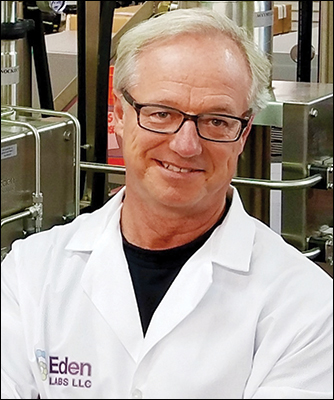Cosmetics Business asks the founder of Eden Labs LLC, Fritz Chess, what does supercritical fluid extraction entail and how far do the benefits over traditional techniques stretch?
Over to the expert...

Fritz Chess
Fritz Chess, Founder, Eden Labs LLC
Supercritical fluid extraction is an increasingly popular processing technique. In spite of its expanded usage, however, few people actually understand what it means.
Supercritical fluid extraction was first developed by the Germans in the 1930s. The most visual description is to imagine a pot of boiling water on the stove.
A lid is clamped down onto that pot so that no steam can escape, regardless of how much pressure builds up; the pot would have to be very robust as the critical point of water is 373°C and 3,191 psi pressure.
As the pressure and temperature build, the steam becomes increasingly dense, while the elevated temperature makes the water less dense.
When the two phases have equalised into one even chamber of dense fog, it is now in its supercritical fluid state.
Once a substance has passed the critical point, it has characteristics of a gas and a liquid. It can penetrate through solids like a gas and dissolve solid materials like a liquid.
These dual properties are particularly useful when it comes to the extraction, or separation, of solid materials.
It is also important to note that
